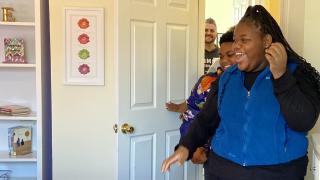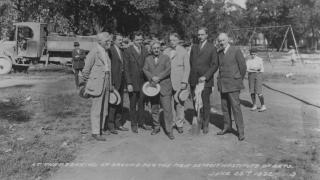
This fall students have the opportunity to take advantage of new bachelor’s degree programs that will prepare them for a successful future in some of today’s fastest growing industries.
Applied Statistics: Drawing on the success of the longstanding minor this new program was launched in response to student and industry demand. The program requires 24 credit hours of content at the 300- and 400-level and builds critical thinking and problem solving skills in data analysis and empirical research. It prepares students for careers in business, industry, and government as well as for advanced degree programs in statistics and quantitative fields. The degree works as a stand-alone major, but also complements a number of campus-wide programs—programs including engineering and the physical sciences, public health, health and social sciences, and economics.
Business Studies: The new business studies major (BSM), available only as a second major, allows students to say “yes” to both passion and professional skills. The program, the only of its kind in southeast Michigan, combines the best attributes of both a liberal arts and professional education. With that combination of skills, students will be prepared to succeed in myriad alternate career paths and will widen their employment opportunities after graduation. The 18- to 30-credit BSM can be completed in conjunction with any primary major. Interested students can choose from four tracks: general business, communications, economics or psychology.
Child Life: The program is one of only three in the state to specifically focus on preparing students to be child life specialists. The degree prepares students to reduce the negative impact of stressful or traumatic events—particularly those related to healthcare and hospitalization—for both children and their families. Students train to promote effective coping through play, preparation, education and self-expression activities. The program includes coursework in health, education, and children and family life, while allowing students to gain direct training in the field through a clinical experience under the supervision of a certified child life specialist.
Independent Program of Study: This unique new program allows first-year students to design their own degree program under the new Dearborn Discovery Core general education requirements. The individual program may not duplicate an already existing CASL major, and it is recommended that— in the true spirit of a liberal arts education— an interdisciplinary curriculum be created. After completing 30 hours at UM-Dearborn with a 3.25 or higher GPA, a rising sophomore will seek out a tenure track professor to propose their individual major idea.
Instructional Technology: This new undergraduate major prepares students with the knowledge and skills to improve instruction, training and learning outcomes by using technology and delivery systems across a broad spectrum of educational and employment settings. Core coursework includes the fundamentals of education, learning outcomes, instructional design, digital technologies and innovative delivery of instruction. It also includes 3 credits for an internship placement to promote community engagement with a relevant field experience. The curriculum provides flexibility in training to allow students to succeed in their chosen career paths, with student choosing from two areas of focus: education or health informatics.




